Muscular Dystrophy UK is the charity for the 70,000 people living with muscle wasting conditions in the UK. They bring together people affected by more than 60 rare and very rare progressive muscle-weakening and wasting conditions.
Muscle wasting conditions are very rare, affecting just over one in every 1,000 people. As a result, some health professionals may never come across anyone with a muscle wasting condition and may not know much about them. But this charity most certainly does.
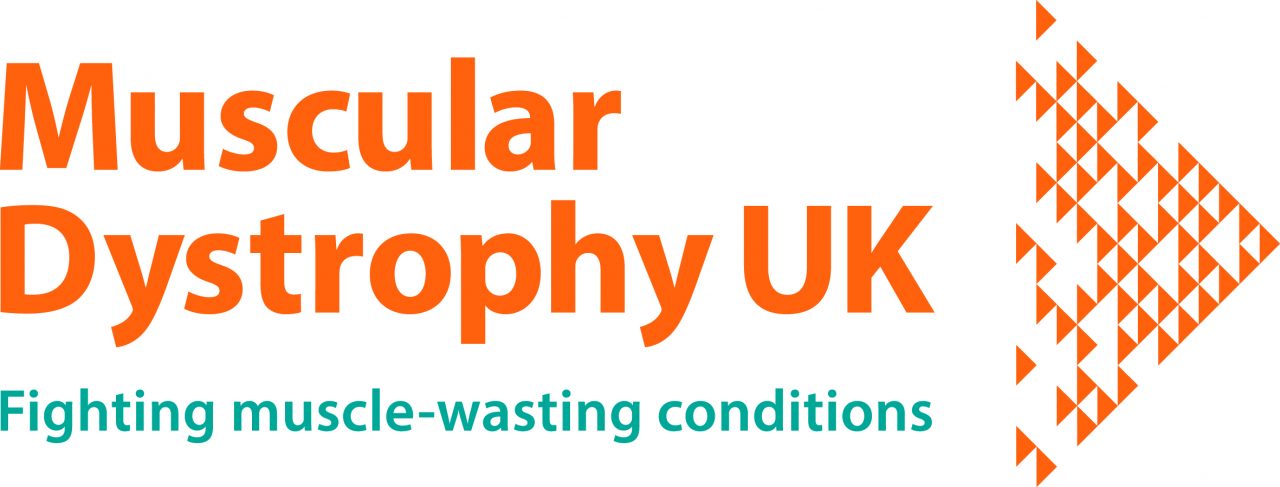
Since 1959, they have been supporting families living with muscle-wasting conditions. They provide vital information, advice, resources and support for people with these conditions, their families and the professionals who work with them.
Emma Vogelmann is Muscular Dystrophy’s Employability Officer and is part of the Trailblazers’ ‘Moving Up’ team which arranges seminars, conferences and ’employability’ weekends designed to prepare , help and assist disabled people looking to find employment – and overcome the hurdles they face.
Recently, Trailblazers attended the ‘Global Innovation Hub’ event “Hacking Disability – How do you change a lightbulb if you use a wheelchair?” Emma, commenting after the event said, “The students asked great questions and really tried to understand what the ability to change a lightbulb by yourself would mean to your feeling of independence. They were all really enthusiastic and considerate of this being a topic they didn’t know much about at the start. What was really interesting was that each group asked very similar questions but no two products were the same.”
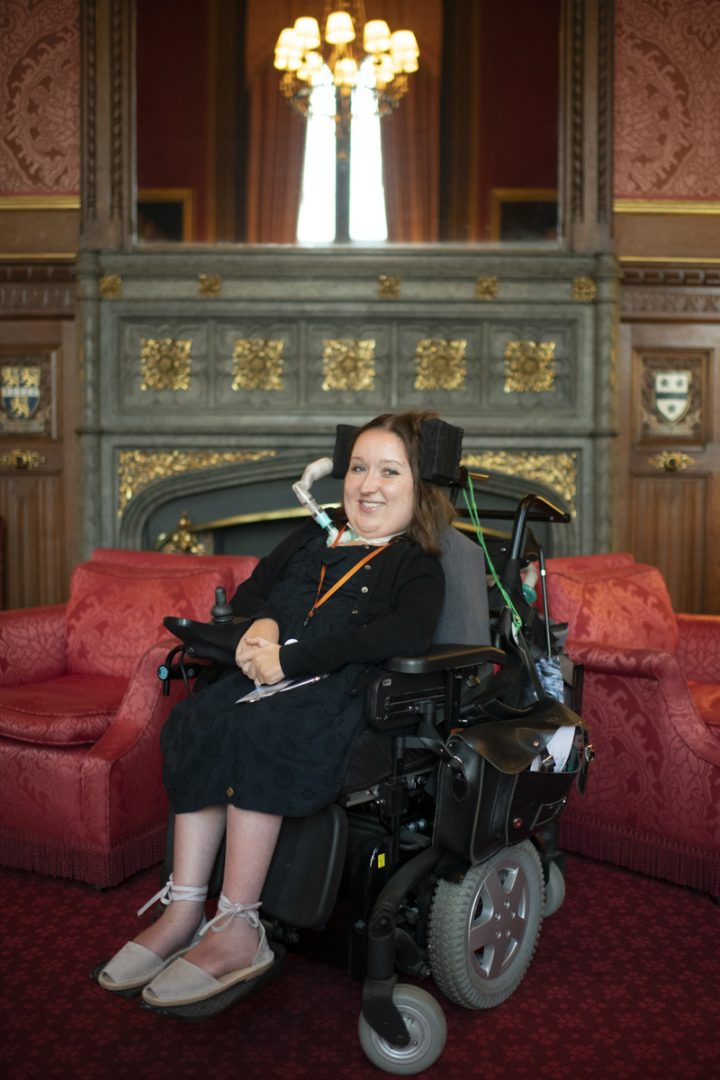
Emma Vogelmann – Employability Officer at Muscular Dystrophy UK
Disability Talk (DT) met with Emma recently to interview her about disabled people and their path to employment.
DT: What are the main barriers that face disabled people looking to get into work?
EMMA: There are, unfortunately, many. But we are looking to assist those who want to work to be able to work. A real hurdle is making both the Employee and the Employer more aware as to the needs of disabled people. I personally know of two young persons who have Cerebral Palsy – but their needs are completely different.
So the employee needs to be aware of making his condition known to his prospective employer – BUT, only when their disability is actually going to affect what he or she can do .. or what he or she needs in support. The Employer, of course, needs to make adjustments or seek support from ‘Access to Work’ when making these adjustments.
DT: What more can Employers do to help?
EMMA: Make it clear on their website and job ads that you are an inclusive employer so disabled job-seekers feel confident that they won’t be judged on their disability rather than their skills. I’d also like employers to think about how and when they ask candidates to disclose their disability. It’s down to the candidate to decide when they feel comfortable so leave it open.
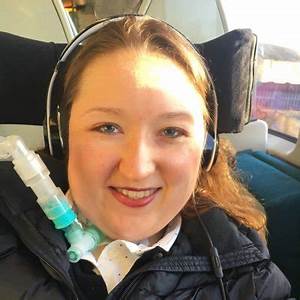
DT: What about getting to work?*
EMMA: Obviously that can be a problem. There is a need to factor-in if public transport is available and accessible. For instance, a large number of London Underground Stations are not step-free.
But the Government’s ‘Access to Work’ scheme can overcome some of these problems by providing financial help for alternative transport. For example: paying for a taxi to their place of work.
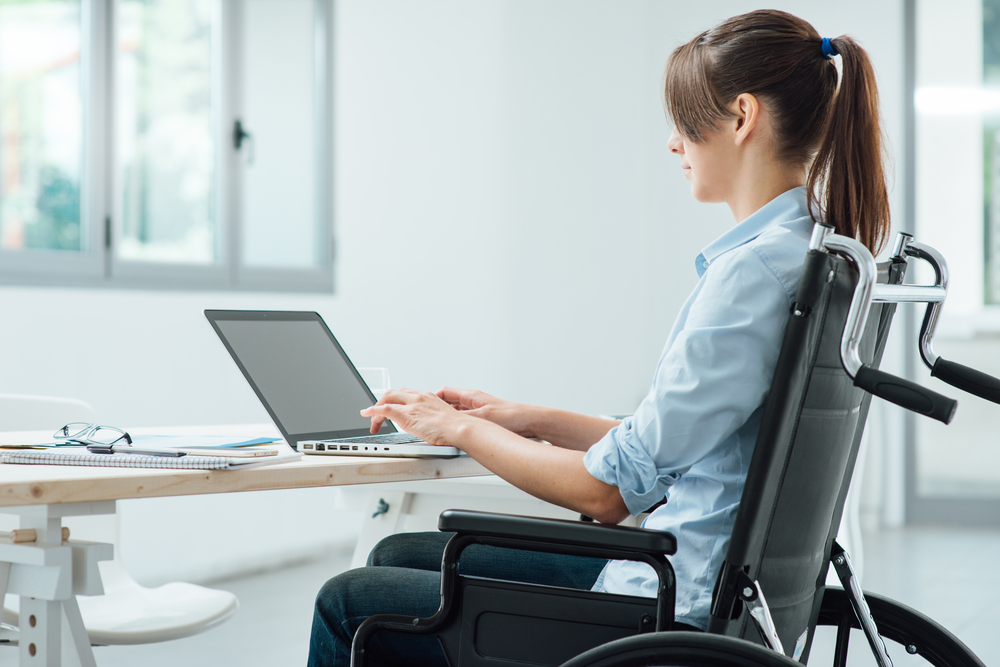
DT: How do you build confidence and resilience for new disabled job-seekers?
EMMA: This is exactly the question I am trying to give people the answer to in the upcoming Employability Weekend. There will be a session on overcoming setbacks and building confidence from PUSH Talks who did a session at the last weekend and are fantastic!
I think as a community disabled people are already incredibly resilient but nothing truly prepares you for how upsetting it is when you don’t get a job that you really want. For many they’ll assume they’ve been rejected because the employer finds out they are disabled so I would encourage disabled people not to assume this. Finding a job even when you aren’t disabled is really hard and there is so much competition for so few roles. I’m not saying disability will never be the reason and if you suspect this then be sure to follow this up and ask for feedback on your application and interview – it is up to the employer to prove they have not discriminated against you.
In terms of confidence I really try to make people realise their accomplishments and focus on all of the skills and experience they have. I know some amazingly talented young disabled writers who have their own websites and blogs and they don’t realise how impressive that is or that not everyone can do that so they don’t blow their own horn. Be proud of the work you’ve done and make an employer see how amazing you are and why they should hire you. Never downplay your experience or skills even if it has come easy to you.
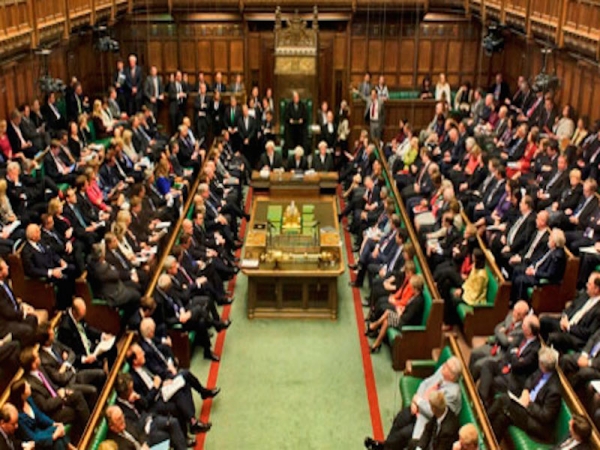
DT: What more can Government do to help?
EMMA: There are a few recommendations I will be making to the Government on how they can reach their target of 1 million more disabled people in work. These will largely be around ‘Access to Work’ and setting up disability awareness training – you will be able to read my full report in the New Year!
DT: Are job Centres helpful – could their services be improved?
EMMA: I think there is room for improvement. From what I understand there are certain advisors who specialise in supporting disabled job-seekers so I’d like to see more of this. I’ve heard from young disabled people that regular advisors don’t always understand that there can be lots of factors that rule out jobs for them such as not being physically capable of working the total hours, or the commute and this can jeopardise their eligibility for some benefits.
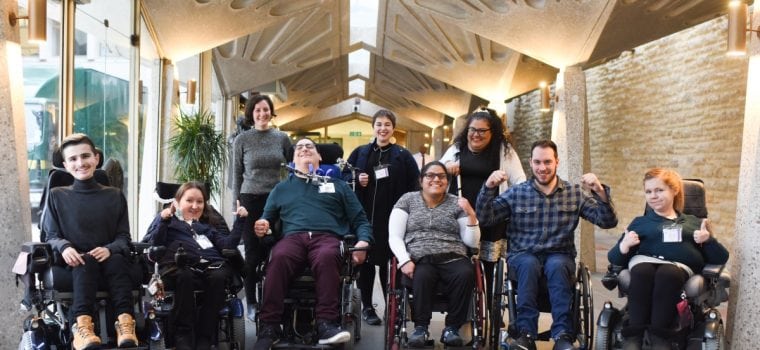
DT: When is your next ‘Moving Up’ weekend and how can interested people find out more?
EMMA: We at Trailblazers (part of Muscular Dystrophy UK) are hosting our next Employability Weekend on Saturday 3rd November and Sunday 4th November 2018.
Free rooms are available at the Premier Inn Stratford which are fully accessible with a range of mobility equipment available on request. The speakers and hosts are well aware of the challenges facing young disabled people looking for work and all sessions will be tailored for those with disabilities.
For those interested in booking a place please click here or if you have any queries you can email or call me: e.vogelmann@musculardystrophyuk.org .. 020 7803 2872
……………………………………………………………………………………………………………….
*Transport For London states that all their bus routes are served by low-floor vehicles, with a dedicated space for one wheelchair user and an access ramp. Buses can also be lowered to reduce the step-up from the pavement.
Around a quarter of Tube stations, half of Overground stations, most piers, all tram stops, the Emirates Air Line and all DLR stations have step-free access. Many boats have boarding ramps to give step-free access.
All taxis (black cabs) have a wheelchair ramp and some private hire vehicles (minicabs) have step free access.
For more information CLICK HERE
